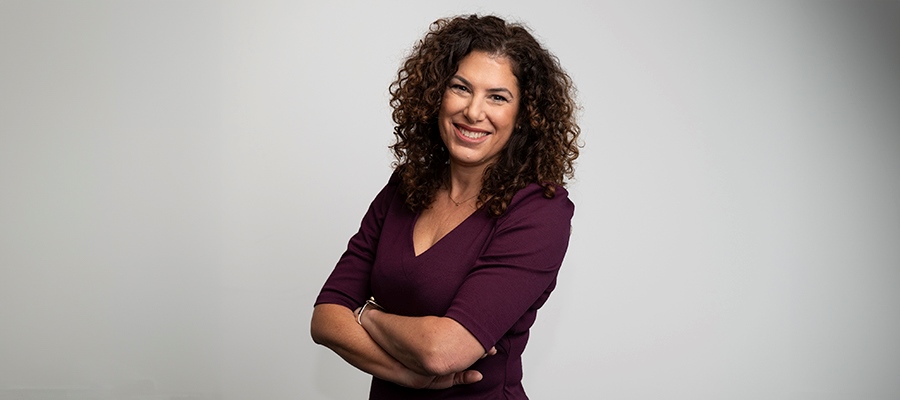

April 17, 2024
Veronica Syrtash could hardly have picked a more consequential moment in music or intellectual property law history when she began her career at the Canadian Musical Reproduction Rights Agency (CMRRA) in 1999.
In June of that year, just a week after Syrtash took up the role, a service known as Napster introduced itself to the world, ushering in a new era of digital streaming that left the entire music industry scrambling to play catch-up.
“Peer-to-peer file sharing was suddenly the biggest thing since sliced bread,” Syrtash says. “My work on licensing and monetization of copyright is all about getting back ahead of the curve. It’s been keeping me busy and engaged ever since.”
“There have been a few sky-is-falling moments, but I feel like we’ve helped give publishers the toolkit they have needed,” she adds.
But Syrtash’s journey to the heart of Canada’s music industry started much earlier. Long before she had even considered law school, Syrtash took up the piano at the age of four, sparking a lifelong love of music.
Music has been a constant companion for Syrtash, who subsequently added the cello to her repertoire and played in orchestras alongside her high school and university studies, all the way until her admission to the Ontario bar.
After developing an interest in public interest advocacy at law school and during her articling term at the Canadian Civil Liberties Association, she landed her dream job at the first attempt post-call with CMRRA, where she would be able to protect the rights of songwriters and music publishers.
“It was the perfect way to combine my legal training and my passion,” says Syrtash, who found plenty of kindred spirits among her colleagues on the CMRRA staff.
“I’m probably the least accomplished musician in the organization. Many staff members are artistic and possess a desire to learn or have ambitions of becoming rockstars. However, our collective goal remains the same, to ensure songwriters and publishers are fairly compensated for their works,” she says.
A few years into her tenure at the organization, Syrtash had built a considerable foundation of practical experience in copyright policy and advocacy. Still, having missed out on the chance to take intellectual property law courses during her original law degree, she went in search of an academic program that could fill the gaps in her theoretical knowledge on the subject, eventually finding the solution in OsgoodePD’s part-time Professional LLM in Intellectual Property Law.
“My boss at the time was an alumnus of the program and suggested it as a way to solidify my fundamental learning and grow my career,” Syrtash says.
And Osgoode’s intellectual property law LLM lived up to the promise, thanks in part to the lasting professional and personal connections she made during her studies.
“Not just the incredibly accomplished faculty, but also the talented professionals that made up the student body. Altogether, that combination made for an incredible learning experience,” Syrtash says.
Another highlight came in the shape of the major research paper she completed on the application of exceptions to Canadian copyright law and the potential impact they might have on Canada’s obligations under international treaties – a study that tied in closely with her own work at CMRRA.
“It was an opportunity to delve much deeper into an area of great interest than I never would have found time to do in my professional life,” she says.
The paper was published in an intellectual property journal around the time of Syrtash’s Osgoode graduation, but it left an even bigger mark on her career, thanks to a citation several years later from the Supreme Court of Canada in a landmark 2015 decision on reproduction rights licensing in the broadcasting context.
“That was a really tangible impact of the LLM, and one that I’m very proud of,” Syrtash says.
Syrtash says she left Osgoode “feeling empowered” and went on to help CMRRA propose its first online music services tariff to the Copyright Board of Canada. She also led the development and implementation of CMRRA’s pioneering Unclaimed Works Portal, which allows music publishers to identify and claim song ownership and associated royalties.
As CMRRA’s senior vice-president of Business Affairs and Corporate Development, Syrtash currently oversees the legal and business concerns of the company, supervising rate-setting negotiations and proceedings, as well as playing a key role in the shaping of company’s strategic direction.
Wondering if the Professional LLM is right for you? Get information on course requirements, application dates, tuition and more!

